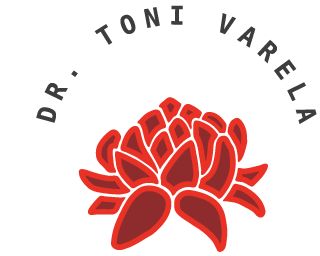End Allergies in 10 Easy Ways, Naturally
25 million Americans suffer from allergies, both food and environmental, and that number is growing. Symptoms can include headache, fatigue, fluid retention/weight gain, wheezing, cold&flu-like symptoms, rashes, hives, and eczema. According to a seasonal analysis performed by http://www.allergycapitals.com, major environmental culprits are ragweed, outdoor mold and pollen from fall weeds, which spread more so on windy days. According to an annual analysis done by the mayo clinic, major inflammatory food allergens are dairy, eggs, seafood, soy, gluten, and various nuts.
Sites report even grimmer news for the fall season and upcoming year with allergic reaction cases being reported more so than ever before due to the following reasons:
Recent studies suggest that rising temperatures and carbon dioxide levels could be extending ragweed season by as much as a month or more.1,2
Pollen from weeds is a greater problem in the fall than in the spring due to high winds from the weather patterns, and fall weeds are surprisingly more prevalent than spring gardens in major urban areas and locations with significant construction.
Outdoor mold resulting from previous storms, including Hurricane Sandy, continues to grow and could be spread further by fall weather and wind patterns.
Lack of genetic modification labeling on foods. If genetic engineers cross a toxic substance, like lectin, or an allergenic substance, like, wheat, with a food that you are not allergic to, you will have an allergic and possibly toxic reaction.3,4
Overuse of pesticides and herbicides in produce, and antibiotics, growth hormone/steroids in meats, which are inflammatory to the gut and depress the immune system.
Increased production of synthetic, toxic household products, metals, and certain cosmetics.
If you are one of the 25+ million suffering from allergies, and interested in long term allergy relief, then here are 10 of Dr. Varela’s tips for reducing allergenic exposure.
1. Close the windows of your car and home during the pollen seasons, particularly on windy days. If ventilation is needed, use the ‘recirculation setting’.
2. Change or clean air conditioner system filters regularly; these can help remove pollen from the air.
3. Remove common allergens from your diet or try an elimination diet. Removing allergens can reduce mucus production, pathogen growth, and is immune supportive. Also, a three-day organic juice fast – with or without food, can clear congestion and flush out toxins.
4. Avoid mowing the grass, raking leaves, and cutting weeds if you have allergies. Let someone else who is not pollen sensitive do these chores. If you must do yard work, wear a painter’s or pollen mask that fits tightly to your face. These are available at hardware or allergy-product specialty stores. When finished, remove clothes in the laundry area (not your bedroom or bathroom), then shower or bathe and wash your hair.
5. When outdoors, consider wearing a hat to cover your hair and close fitting sunglasses to protect your eyes. If your eyes become irritated, do not rub them. Use artificial tears or saline drops to wash out your eyes and put a cool, moist towel over your eyes. If you wear contact lenses, remove and clean them daily during the pollen season. If your eyes are itchy, take your lenses out to avoid scratching your eyes if you rub them.
6. Take your preventative allergy medicines and eye drops regularly during your allergy season. Symptom relieving natural medicines including antihistamine decongestant tablets, such as quercitin, vitamin C, N-Acetyl-Cysteine (NAC) and anti-itch eye drops – homeopathic or with eyebright, can be used as you need for symptomatic relief. If you are going to be outside or anticipate your allergies are going to bother you during a particular activity, use these symptom relieving medications BEFORE you begin the activity. Most allergy pills take 2 – 3 hours to reach maximum effect.
7. Avoid irritating odors and fumes and dry air that can irritate the lining of your nose and eyes. These include chemical fumes from cleaning products, paints, gasoline, automobile exhaust, insecticides and aerosol products. Avoid tobacco smoke, particularly in crowded smoking rooms or bars. Avoid using highly scented soaps, perfumes, and lotions, nail polish and remover, hair spray and scented candles.
8. Calm your immune response to allergies. Take thymus extract, metyhylsulfonylmethane (MSM), or try stinging nettles, which has been shown effective for hay fever.
9. Optimize your digestion. Probiotics, like lactobacillus acidophilus and bifidobacteria reduce the potential for allergies. Protease enzymes, taken on an empty stomach, decrease allergic and inflammatory responses. Digestive enzymes and betaine HCl assist in food digestion and reduce the likelihood of food sensitivities.
10. Contact Dr. Varela or your Naturopathic Doctor today. Seek adequate testing and treatment that is fast-acting, preventative, and effective for your seasonal and food allergy symptoms.
References:
1. David Freeman, WebMD article (2009). Ragweed Pollen and Fall Allergies. Retrieved from http://www.webmd.com/allergies/features/ragweed-pollen.
2. Ziska L, et al. Recent warming by latitude associated with increased length of ragweed pollen season in central North America. Pro. Natl Acad Sci 2011; doi:10.1073/pnas.1014107108.
3. Identification of a Brazil-nut allergen in transgenic soybeans (New England Journal of Medicine, Vol 334, No 11, pp 688-692, 1996)
4. Effect of diets containing genetically modified potatoes expressing Galanthus nivalis lectin on rat small intestine (Lancet, Vol 354, No 9187, pp 1353-1354, Oct 1999)
